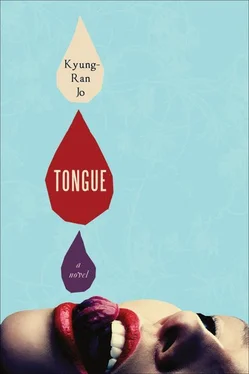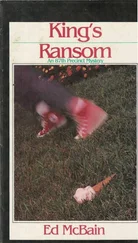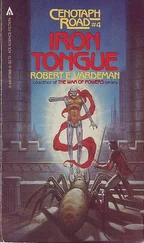“Chef!” I glare at him as if he’s Seok-ju.
Are you going to back down? He glares back. Don’t be stupid .
“What they want is the best Italian food they can get. That’s why they’re coming here. And they want you to cook it. Isn’t that acknowledgment that you’re the best cook? If I were you, I would want to go straight into the kitchen.”
“I’m not that crazy to think that.”
“I’ll make you a cup of tea.”
“Am I being made a fool?”
“It’s simple. Just cook.”
“I don’t do it for just anyone.”
“They’re customers.”
“They’re not just customers to me, Chef.”
“Yeah, they’re very special customers.”
I’m quiet.
“Make something special.” Chef points his chin at the rain pattering on the window. “Or make salad with that,” he says, awkwardly, like he’s trying to make a joke. A long time ago, with the same expression, he told me about a gourmet Chinese emperor who held a contest to select his personal chef. Chefs from around the country presented various delicacies but couldn’t excite the rarefied taste of the emperor, whose eyes had been opened to great food at a young age. The emperor was disappointed. But one chef made a raindrop salad and a raindrop omelet, followed by a raindrop roast, and finished with raindrop ice cream. The emperor ate everything happily, exclaiming at its deliciousness, and gave unprecedented praise. Then, to ensure that nobody else would ever eat such a special meal, he executed the chef.
“Go ahead, go into the kitchen. You’ll find what you want there.”
What I want. What is that?
“I might fail.” I look out the window to the road, slippery like the back of a whale, the cars gliding by and the rain slashing across the inky sky. I want to go somewhere far. Would bass be good, or duck? I want to disappear without a trace. Se-yeon likes bass and Seok-ju likes duck. Cooking is the last thing I want to do. Even the most delectable food vanishes in an instant. Did we really love each other? What can I be certain about? If I didn’t know how to cook, what would I have left? The sound of rain awakens my ears, hundreds of small fists pounding on the windows.
There isn’t much time before they are to arrive. It’s just as important to prepare food on time as it is to make tasty dishes. And to bring out the completed dish in a relaxed and leisurely way, without appearing rushed. Food disappears in the blink of an eye but taste lasts for a long time, the taste that explodes on the roof of your mouth and the tip of your tongue. The memory of that taste bobs to the surface when you least expect it. When a certain taste enthralls you, there comes a time when it’s difficult to free yourself from it.
As if drawing a gun, I carefully take my hand out of my pocket and lift it up. The hand that moves coldly and quickly when dealing with fish, hot and passionately with meat, infinitely gentle and secretive when touching him. I have this hand even if her body is beautifully perfect.
I brush the blade of the knife with the tip of my fingers. The blade is still sharp, alive. You need a sharp knife to cut evenly, to slice without harming an ingredient’s cell structure. A dull knife pierces the ripe cells of meat or fish, lessening its taste. I’m satisfied with the blade. I grab the duck. After turkey it’s the second-largest bird, with a grand and intricate taste. I will stuff it with chestnuts and brush its surface with olive oil and herbs and roast it in the oven. With the handle of my knife I gently tap the duck’s head, lying limp. It’s my fate to love and cook. Loving and cooking are different but also the same. I raise my knife high and bring it down precisely on the duck’s legs, spread neatly across the chopping block.
Okay, come on in. I’ll make you such good food that you’ll want to kill me .
Warm food, pie, and cake were presented on forty plates, along with a variety of poultry. But a poor goose laid an egg on the table, out of fear.
—Count Khevenhueller, 1756
UNCLE TREATED WOMEN with various problems. One woman was so sensitive to smell that she couldn’t eat a thing. Another woman was fine when she spoke, but when she opened her mouth to chew, pain shot up her neck and shoulders. One woman had a fit when she heard the word carrot , and yet another woman ate only clementines. Uncle talked about them as if they were suffering from different diseases but I thought they shared the same illness. They had never eaten a good meal or they didn’t know how food tasted or they didn’t know what to eat and how to eat it. But it wasn’t that simple to Uncle. Uncle’s job was to cure these women, and of all his patients, he fell in love with the one who ate only clementines.
Uncle likened the consciousness of humans, of which he said six sevenths was submerged below the surface, to stew. Thick, made with stock, simmered for hours with cubes of beef and carrots and cabbage and potato. A copper stew pot has a thick bottom and a long, sturdy handle, and any ingredient you put in it will instantly lose shape and melt. When steam starts to hang above the pot and vapor spreads through the air, the fronts of your eyes get cloudy. Nobody knows if I’m crying or smiling as I’m making stew, and only the cook knows if the stew is made of vegetables or a pheasant’s head or a pig’s liver or a dirty sock.
My first impression of Uncle’s wife was that—how do I say this—she looked like a young calf. Pale, pinkish skin; skinny, large, black shining eyes, frozen by fear. And over her mouth she wore a mask as if to say, I’m not ever going to eat. But she also held a fork and knife in each hand at the table, as if she were going to eat somehow. She was your typical neurotic. Apparently a big sharp fork with one bent tine weighed on the subconscious of Mrs. N, Freud’s patient, which was why she couldn’t eat and was always hungry. When she was a young girl, her father had punished her if she balked at eating a piece of meat that had grown stone cold, its fat congealed. Uncle thought there must be something like a sharp fork with a bent tine looming over his wife, too, but he was unable to discover what it was. Uncle took it slow, as if he were cooking a rice dish. Back then Uncle was radiant—I thought it was the look of a man in love. But his wife showed me that so many women don’t want to eat and that food could be the cause of the most excruciating pain. This refusal to eat is not the same as drinking around the white film that forms atop hot cocoa or milk or cooled porridge. Not eating something you dislike doesn’t bring about pain that is evocative of death.
Eating is an absolute, repetitive activity. The same as love. Once you start you can’t stop. So if you can’t eat when you’re hungry, it’s worse than being stricken with the gravest illness. Uncle’s wife, who possessed a flickering appetite, committed suicide in the most dramatic way—she slathered oil all over her naked body and hanged herself. It may have been a rebellion against things she couldn’t eat, or perhaps it was a painful ritual of self-sacrifice. Was it resignation or a holy ritual? If it was her intention to be remembered by the strongest last image, she got her wish. Even now I sometimes think of her dangling from the ceiling, her emaciated body glistening with oil.
Uncle dreamt about her often after her death, and he said that in his dreams he’s always examining her teeth. Every time I imagined Uncle stretching his neck out to look deep down her throat, I felt a pain that might split my chest in two. I don’t know if the pain came from sadness or an instinctual anxiety. I started to resent his wife. Death requires more love from the one left behind. I hoped Uncle would meet another woman, someone who knew without a doubt what she wanted to eat. But Uncle didn’t fall for anyone else and instead quickly started to depend on alcohol. It was the most definite and easy way to forget, but it was also the beginning of a disease that was nearly impossible to cure.
Читать дальше












